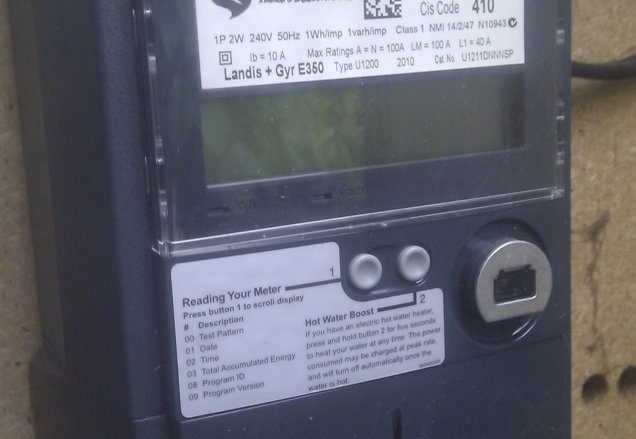
Australia’s Smart Meter Revolution About To Get Into Gear? | Image: Christopher Corneschi
Implementation of rule changes in December concerning electricity meters may accelerate the uptake of home battery systems across Australia.
The installation of electricity meters and related services have generally been provided by the monopoly electricity network operator. From December 1 this year, this market will be opened up with view to increasing competition and choice as well as promoting investment in metering technology and services.
From December, electricity retailers will be able to install and manage meters, and this is expected to increase the rate at which smart meters are rolled out.
Already in wide use in Victoria, smart meters offer advanced functionality such as providing consumers with more detailed information about their energy consumption. Smart meters measure and record how much electricity is consumed at 30 minute intervals and send this information via a two-way, digital communication system.
The Australian Energy Market Commission (AEMC) says a grid populated with smart meters will lead to more efficient network investment decisions, automated meter reading, remote connections and improved response times to outages.
SA Power Networks recently announced it will no longer install or replace meters from December 1 and will cease to maintain or manage data for replaced metering equipment.
Some retailers are already beginning to offer smart meters to replace existing units in the lead-up to December. With the rise of smart meters, so too will time-of-use (TOU) electricity tariffs become more common, where there can be a greater variation in the cost of a kilowatt-hour depending on what time of day it is consumed.
While generally speaking, standard tariffs can be a better deal for solar households currently (unless no-one is home during peak pricing periods), it can be a different situation if solar batteries are installed. As residential time-of-use pricing is usually most expensive in the late afternoon and evenings, this is when a battery can provide the greatest benefit and also accelerate the payback period on battery storage.
For further information on standard vs. time-of-use tariffs in relation to solar and storage, check out this detailed post from last year by SQ blogger Ronald.
With TOU also comes the opportunity for grid arbitrage; which is where electricity is stored from mains supply when it is cheapest and used when it is most expensive. However, Finn has pointed out there would need to be a significant difference between rates to make the practice worthwhile.

 RSS - Posts
RSS - Posts



I realized some years ago that storage batteries charged at off peak rates and then used to reduce expensive peak consumption from the grid would be an advantage. At the time batteries were too expensive.
It seems that the uptake of solar is changing things for the better.
With so many batteries that are being installs
1
I wonder do the electrician need to give a compliance Certificate
when the standards for the battery back up is not out yet
2 The Battery Back up COURSE should only be on DC Coupled
as the AC coupled is much easier.
3 and a Project case study should be made beside the Final assessment
4 All RTO has to be strict with passing the candidate
so the industry will be very much in control
RTO will pass the student if they are able to correct their mistake
Thank you for listening
I’m due to get a smart meter for my solar. Does anybody know what smart meter model is Origin going to install?